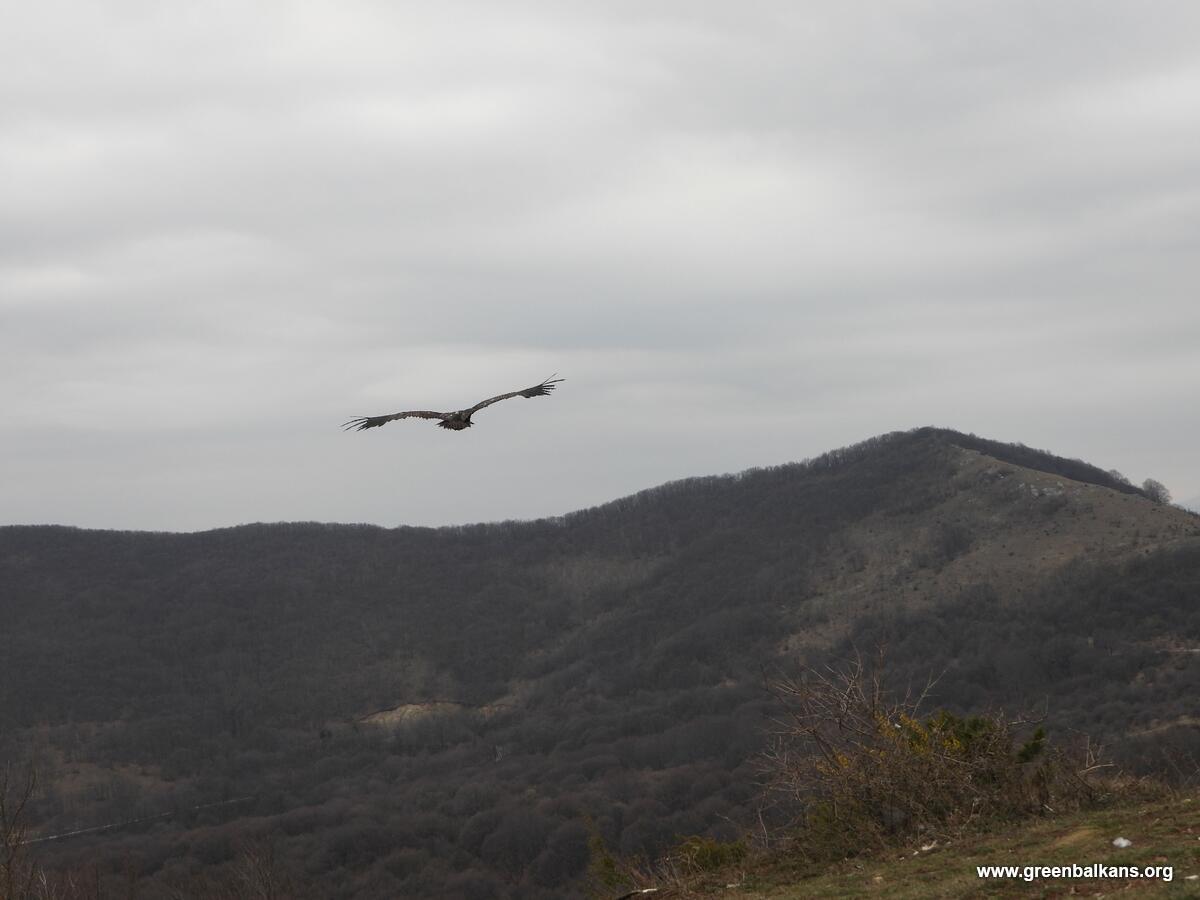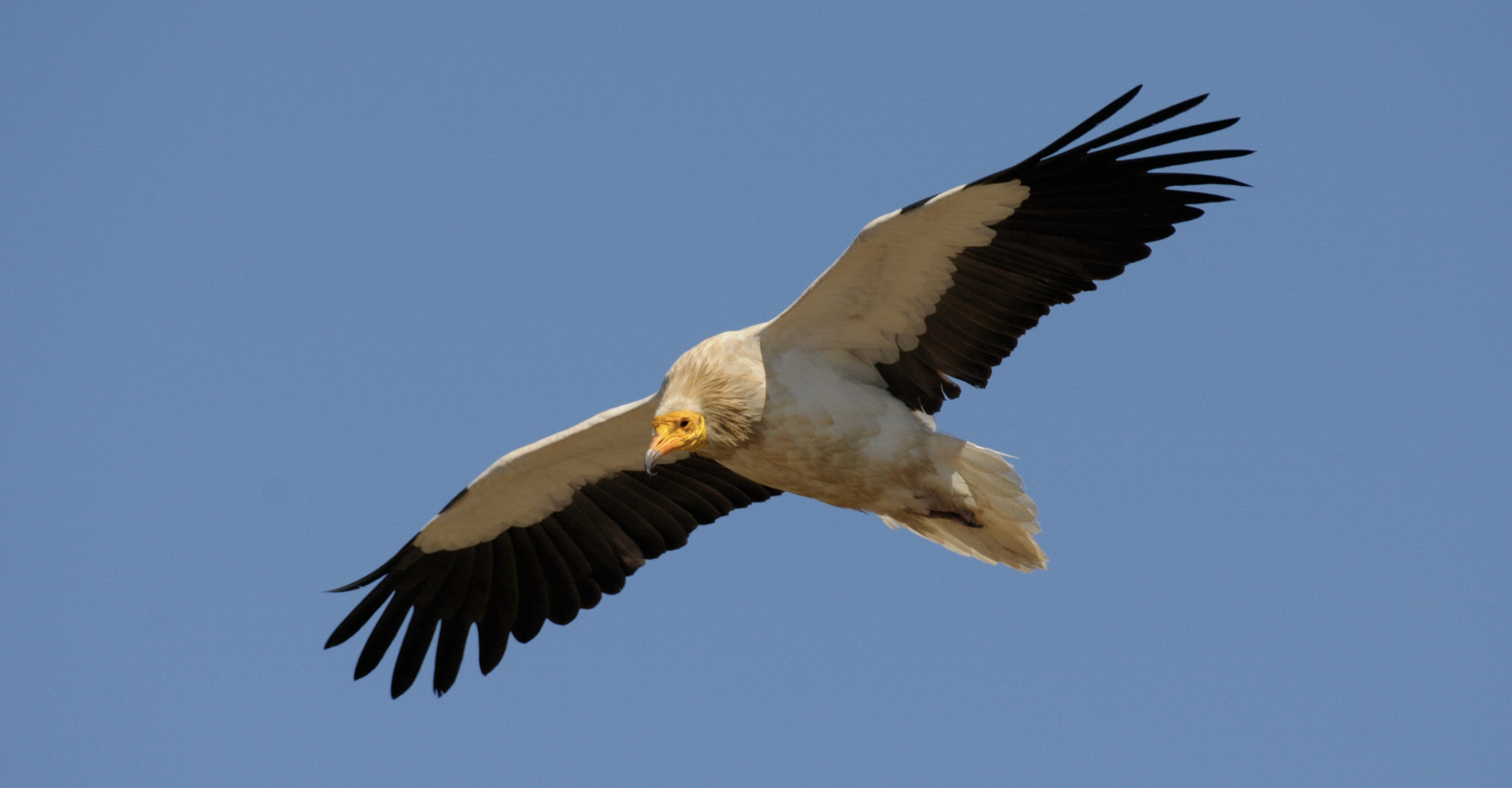The Egyptian vultures breeding in the Douro canyon are still in Africa, but soon they will be starting their migration to Europe – and so the team of LIFE RUPIS is doing everything to receive them well.
Among the several actions within the project is the establishment of supplementary feeding points on the Portuguese side of the canyon to cater for the needs of this endangered species. Some of these sites are managed by local NGOs – one of them is called Palombar.
Recently they sent us the following report from the field, informing of the several black vultures observed in the area;
The black vulture (Aegypius monachus) is the largest raptor in Europe (it can reach 3 m in wingspan), and was, until recently, extinct as a breeding species in Portugal, with the last breeding occurring in the mid-1970s. Then, in 2010 nesting of two pairs in the International Tejo area was confirmed, marking a successful recolonization of the country from the growing nearby Spanish colonies. Since then, the breeding population has been increasing and in 2012 a breeding pair has established in the International Douro – about 100 km from the nearest colony in the Sierra de Gata and Arca, in Spain, the farthest recolonization ever recorded in Iberia so far for this strongly philopatric species! This pair bred successfully in the last three years (2014/16). In 2015, it was estimated that 13 couples bred in Portugal.
One of the major threats to this species is mortality from poisoning through ingestion of baits or poisoned carcasses, often used to control predators of game species. Mortality associated with this phenomenon can be very high, mainly due to the colonial behavior of these animals. In May 2015, for example, in one case in northeast Portugal, 4 black vultures and one Egyptian vulture (Neophron percnopterus) died near the river Angueira, in Algoso.
On the other hand, the emergence of bovine spongiform encephalopathy (BSE) or “mad cow disease” in the end of the 90s led to the approval of strict measures to remove all livestock carcasses, which resulted in a decrease the availability of food for scavenging birds like vultures. This decline in food availability paired with mortality from poisoning is one of the major conservation challenges facing vultures.
To minimize poisoning episodes and increase food availability, food is routinely supplied in supplementary feeding points – in Portugal these must be sealed areas of approximately 1 ha.
Palombar is currently managing 4 such sites, 3 of them in the Sabor and Maçãs SPA, and 1 in the International Douro and Águeda SPA, while this year it plans to open two more sites
These supplementary feeding sites are part of a small network of such sites and contribute to the implementation of the National Strategy for the Conservation of Scavengers, published by the ICNF (the Portuguese statutory nature conservation agency). Under the Life Rupis project, a cross-border feeding strategy for vultures has been developed. In our sites a relatively small amount of food is usually deposited once a week, but in the periods of greatest need (breeding season) we increase apportions to twice a week.
The number of black vultures frequenting our supplementary feeding points has been increasing, with at least 5 different birds using our sites- This, couples with the increasing observations of the species all over the northern part of Portugal, suggests a potential extension of the distribution area of the species to the north.
The project LIFE RUPIS, which aims to strength the populations of Egyptian Vulture in Douro International valley, through improved breeding success and reduction of mortality, and implemented by the VCF and partners, including SPEA (BirdLife in Portugal), ATN and Palombar (regional conservation organisations in NE Portugal), the Junta de Castilla y Leon & the Fundación Patrimonio Natural de Castilla Y León, the Portuguese electricity distributor EDP-D, the Portuguese statutory conservation agency ICNF and the Portuguese environmental police force (GNR). The project is tackling the most important threats to Egyptian vultures, namely food shortages, degradation of the habitat, electrocution risk and the illegal use of poison
The Egyptian vulture is Europe’s most threatened vulture species – classified as “Endangered” at global level. While the three others European vulture species are registering positive trends across Europe, Egyptian vultures continue to decline in most regions in the continent (and elsewhere).
Photos: Palombar





